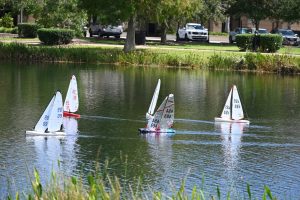
To include your event in the Briefing and Live Calendar, please fill out this form.
Weather: Mostly sunny, with a high near 77. Breezy, with an east wind 13 to 16 mph, with gusts as high as 24 mph. Wednesday Night: Mostly cloudy, with a low around 68. East wind 6 to 13 mph, with gusts as high as 20 mph.
- Daily weather briefing from the National Weather Service in Jacksonville here.
- Drought conditions here. (What is the Keetch-Byram drought index?).
- Check today’s tides in Daytona Beach (a few minutes off from Flagler Beach) here.
- Tropical cyclone activity here, and even more details here.
Today at a Glance:
River to Sea Transportation Planning Organization (TPO) Bicycle/Pedestrian Advisory Committee meets at 9 a.m. at the Airline Room at the Daytona Beach International Airport. The TPO’s planning oversight includes all of Volusia County and the developed areas of eastern Flagler County including Beverly Beach and Flagler Beach as well as portions of the cities of Palm Coast and Bunnell, with board member representation from each of those jurisdictions. The committee is responsible for reviewing plans, policies, and procedures and rank priority projects as they relate to bicycle and pedestrian issues within the TPO planning area. See the full agendas here. To join the meeting electronically, go here.
Separation Chat, Open Discussion: The Atlantic Chapter of Americans United for the Separation of Church and State hosts an open, freewheeling discussion on the topic here in our community, around Florida and throughout the United States, noon to 1 p.m. at Pine Lakes Golf Club Clubhouse Pub & Grillroom (no purchase is necessary), 400 Pine Lakes Pkwy, Palm Coast (0.7 miles from Belle Terre Parkway). Call (386) 445-0852 for best directions. All are welcome! Everyone’s voice is important. For further information email [email protected] or call Merrill at 804-914-4460.
Weekly Chess Club for Teens, Ages 9-18, at the Flagler County Public Library: Do you enjoy Chess, trying out new moves, or even like some friendly competition? Come visit the Flagler County Public Library at the Teen Spot every Wednesday from 4 to 5 p.m. for Chess Club. Everyone is welcome, for beginners who want to learn how to play all the way to advanced players. For more information contact the Youth Service department 386-446-6763 ext. 3714 or email us at [email protected]
Notably: Frederic Jameson died on Sept. 22. He was 90 years old. He was a literary critic and Marxist theorist. He was also twice the winner of the journal Philosophy and Literature’s Bad Writing Award (not that Philosophy and Literature couldn’t win a few itself: the current issue has articles titled “Biofictional Nietzsche among the Biofictionalists” and “Desynonymizing (World) Theory and Poetics.”) Jameson had a lot to do with my quitting my master’s program in history, one thesis short of the degree. I had all my coursework done. But jameson stood in the way of the rest. I was forced into my thesis topic by my two advisers, when–being 22–I didn’t have enough arrogance to push them back and stick to my own ideas. They had me working on something about Hegel, and pushed Jameson on me as source material, as if Hegel wasn’t incomprehensible enough. Looking back, I think they were just trying to get rid of me, since by then I had made the mistake of confessing that I had no interest in a doctorate and planned a career in newspapers, and wrote columns regularly in UNC’s papers, which they very much disliked (one of them was about the master-slave relationship between graduate students and their advisers). Here. See if you can make sense of this, from Jameson’s The Political Unconscious: “Such a catalogue suggests, not merely that Althusser’s critique may be construed much more widely than the work of Hegel, which is its central exhibit (and may find application in thinkers who are expressly non- or anti-Hegelian), but also that what is at stake here would seem significantly related to problems of cultural periodization in general and to that of the category of a historical “period” in particular. However, the more properly Marxist models of “expressive causality” denounced by Althusser are strictured from a rather different perspective as involving the practice of mediation and as dramatizing still relatively idealistic conceptions of both individual and collective praxis: we will return to these two reproaches later in the present chapter.” Don’t wait. Reproach now. He got easier in his later years. By then I was a drop-out.
—P.T.
View this profile on Instagram
![]()
The Live Calendar is a compendium of local and regional political, civic and cultural events. You can input your own calendar events directly onto the site as you wish them to appear (pending approval of course). To include your event in the Live Calendar, please fill out this form.
January 2026
Palm Coast Code Enforcement Board Meeting
Separation Chat: Open Discussion
Flagler Beach Library Book Club
The Circle of Light A Course in Miracles Study Group
Flagler County Republican Club Meeting
Flagler Beach Parks Ad Hoc Committee
Flagler Beach United Methodist Church Food Pantry
Flagler County Drug Court Convenes
Model Yacht Club Races at the Pond in Palm Coast’s Town Center
Palm Coast Democratic Club Meeting
Flagler Beach City Commission Meeting
Evenings at Whitney Lecture Series
For the full calendar, go here.

The concept of scarcity permits Sartre to articulate human need as a lack which is at one and the same time a relationship to the objects of the outside world and a determinate type of distance from other people as well. Just as the fact of scarcity forces each individual to search desperately for the objects of his need, laboriously to create them out of unfavorable materials and under difficult conditions, so also each object which I can consume is one implicitly wrested from my neighbor; and in a more general way, my very existence, in a world of scarcity, is a threat to my neighbor’s existence, as is his for me. Thus Manichaeanism and violence have their source in the very contingent structure of the world of matter itself, and it is with the accents of an older rhetoric, the homo homini lupus, that Sartre evokes this absolute otherness imposed on human life by scarcity: “the century would have been a good one, had not man’s cruel, immemorial enemy lain in wait for him, that Carnivorous species that has sworn his destruction, that hairless, malignant beast, man himself!”
–From Frederic Jameson’s Marxism and Form (1971).







































Pogo says
@P.T.
Irony? I think of the many friendly, kind, ordinary, and humble, hearts I have known who were serene and content with a life that was sufficient — and seldom more.
For our new dear leader:
https://www.youtube.com/watch?v=ODftYTD3Rbs
Better luck next time — everybody.
Ray W, says
Thank you, Mr. Tristam, for your memory-laden comment on Hegel.
As a Hegelian, I have to wonder just how many doctoral dissertations have been submitted for final review over the past 220 years.
I have long pictured in my mind thousands of poor Austrian or Czech or Swiss or French or German doctoral students gathering daily in the coffee houses of 1830s Vienna or Prague or the capitals of any of the Swiss cantons or Paris or Berlin hoping that someone would buy them a scrap of bread while they argued and counterargued the merits of Anarchism or Socialism or Communism or capitalism from a Hegelian perspective, not realizing that the individual “they” was forming the collective or societal Hypothesis and Antithesis of Hegelian thought that cascaded into the eventual overthrow of the European royal political order.
I suppose each doctoral student’s thesis then or now had or has at least a tinge of merit, as Hegelian thought itself is based on the concept of a clash of ideas leading to an ever-changing synthesis.
From the Hegelian perspective, conservatism has and should have synthesized since its founding in the ideals of the Glorious Revolution of 1687, and conservatism did synthesize for a time, but today’s form of Republican thought never evolved in a reasoned clash of conservative ideals; it was hijacked by a non-reasoning anti-intellectual force into a form of political thought adrift from conservative values.
Chip D says
“today’s form of Republican thought never evolved in a reasoned clash of conservative ideals; it was hijacked by a non-reasoning anti-intellectual force into a form of political thought adrift from conservative values.”
Also known as “MAGA”?
Ray W, says
On Sundays, the News-Journal publishes a USA Today 50-state set of news blurbs.
This past Sunday, the blurb for Pennsylvania was:
“Erie: The Evolution, a fuel-saving, reduced emissions freight locomotive now in its fourth generation, was developed by GE Transportation engineers in Erie. More recently, the same plant, now owned by Wabtec Corp., has developed and built early models of the FLXDrive battery locomotive. Now, Wabtec, Erie County’s largest industrial employer, looks to develop another new product at its sprawling facility in Lawrence Park Township.”
Curious, I looked up the FLXDrive locomotive and found an article from late 2023 about Rock Hill Mines, an Australian iron ore extractor based in the Pilbara region of western Australia, buying one of the new-model all-electric locomotives with its water-cooled battery.
Rock Hill Mines intends to pair the new locomotive with an already-existing diesel-electric locomotive. According to the company, the hybrid locomotive “set” will provide a “double-digit percentage reduction in fuel costs and emissions.”
A typical Rock Hill Mine train set is one and a half miles long and carries more than “33,000 tonnes of iron ore.” As transport of that much weight to a seaport crosses a mountain, the electric locomotive is expected to discharge much of its stored energy during ascent and then fully recharge itself with regenerative braking during its 214-mile descent from the mountain peak on the way to the port. The recharged battery can power the empty train back to the mine, where it can be fully recharged again.
Make of this what you will.
Me? According to Statista, in 2020 the U.S. Class I locomotive fleet comprised 23,554 units.
On a 50-year life cycle with proper maintenance and repair, that means some 470 need to be bought each year just to keep up with the aging-out of older locomotives.
According to the Bureau of Transportation Statistics, as of 2022, 44.2% of the Class I fleet was built prior to 2000, which suggests a 40-year average life cycle.
From 2010 to 2014, rail companies added 3223 Class I units, or 644.6 per year on average. From 2015 to 2019, 1947 units were added, or 389.6 per year on average. Between 2020-2022, 116 units were added, or 38.67 per year.
Clearly, something odd or unexpected is happening in the rail industry, because rail transport figures have been up and down over the last 15 years or so, other than a downturn during the pandemic.
One possible explanation is that American rail company planners know that fuel-efficient locomotives are soon to arrive in the marketplace in large numbers. If locomotives can be expected to last 40 years with appropriate maintenance and repair, it stands to reason that purchasing older technology locomotives that cost more to operate is not a good long-term business plan. Waiting for less pollutive, more fuel-efficient, and maintenance-friendly new generation powerplants to prove themselves reliable cannot be described as a bad choice. If the new-generation locomotives can be developed here and manufactured here, all the better.
I have already commented about OptiFuel’s approach to locomotives, but it bears repeating.
The Orlando-based company has orders to convert all of Argentina’s locomotive fleet to LNG-fuel. Thier locomotive design has already passed initial testing requirements.
An aging locomotive conversion consists of first removing the old large and heavy 8000 HP diesel engine from the locomotive frame and then affixing a new platform to the frame. The new platform holds 10 smaller and lighter Cummins natural gas-powered engines. A natural gas tender adds another five such Cummins engines on its frame to generate the electricity needed to power the electric traction drive motors.
If any one of the 15 total modular engines breaks down, it can be extracted from the frame and replaced in one hour. Each engine produces 510 HP. Fuel costs are said to be cut in half, as natural gas is much cheaper now than is diesel fuel for the same amount of energy. Pollutive emissions are vastly reduced.
OptiFuel says it can also deliver new LNG-powered modular locomotives and tenders at more than competitive prices, compared to old-style diesel electric locomotives.
Mark says
A lot more to the Evolution than you have shared including Tier 4 conversions. Nice to see a rail post here.
https://en.wikipedia.org/wiki/GE_Evolution_Series
Ray W, says
Thank you, Mark, for adding to the thread. That is my hope in all my comments. People will consider the issues and add to them as they wish.
My comment focus was on the development of the first all-electric Tier I locomotive, but the news blurb also mentioned the Evolution locomotive.
Ray W, says
The Bureau of Labor Statistics released the October CPI report today. When compared to October 2023 CPI figures, inflation was up 2.6% year over year. Last month, CPI inflation was 2.4% year over year. The October reading was “in line with economists’ expectations.”
According to the reporter, a “statistical quirk” in October 2023 partially skewed the year over year data. Per the reporter, last October, “[t]he monthly inflation rate … was unusually low, making the October 2024 reading look relatively high by comparison, economists said.”
Fed Chairman Powell spoke after the report came out. Economic data points to inflation ‘continuing to come down on a bumpy path.” He added, “One or two really good data months or bad data months aren’t going to really change the pattern at this point[.]”
Stephen Brown, deputy chief North American economist at Capital Economics told the reporter: “The overall [inflation] trend is positive.”
Make of this what you will.
Me? The American economy remains strong. We haven’t been destroyed. We are better off economically than we were four years ago.